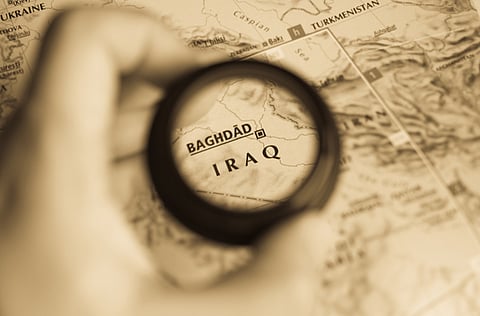Kurds suspend all participation in government
Kurdish forces take over two oil fields in north Iraq

Baghdad: The Kurdish political bloc will no longer take part in Iraq’s national government in protest against Prime Minister Nouri Al Maliki’s accusation that Kurds were harbouring Islamist insurgents in their capital, the foreign minister said on Friday.
“We have suspended our government business,” said minister Hoshiyar Zebari, who is a Kurd.
The Kurds said on Thursday they were cancelling their participation in cabinet meetings. Zebari told Reuters that Kurdish ministers were now suspending their day-to-day involvement the foreign, trade, migration and health ministries and the deputy premiership.
Zebari said the Kurds will continue to attend the parliament, elected on April 30, which is seeking to form a new government in the face of a Sunni insurgency that has seized large sections of northern and western Iraq.
Al Maliki said on Wednesday the Kurds were allowing insurgents of Isil, an offshoot of Al Qaida, to base themselves in Arbil.
Zebari said Iraq risked falling apart if a new inclusive government is not formed soon as “the country is now divided literally into three states - “Kurdish; a black state (Isil) and Baghdad.” He urged Iraq’s political blocs to form a government quickly. “There is a need for all the leaders to work together and recreate the new Iraq, to build a federal Iraq based on the principles in the constitution.” He said that unless Iraqi leaders rose to the challenge “the consequences are very dire: the complete fragmentation and failure (of Iraq).”
Meanwhile, Iraq’s top Shiite cleric Grand Ayatollah Ali Sistani urged fighters to respect the rights of all Iraqis, regardless of sect or politics, after an escalation in apparent sectarian killings in recent weeks.
Tens of thousands of Iraqis responded to a call from Al Sistani on June 13 to take up arms against the insurgency.
“We would like to stress to all our armed forces and those volunteers who have joined them ... the necessity of strict and full commitment in taking care of the rights of all the people,” according to the text of a sermon delivered by an Al Sistani aide.
Fighters should “not ...transgress against any innocent citizen no matter their sectarian or ethnic affiliation or whatever their political stance,” aide Abdul Mehdi Al Karbala’i told worshippers at the Imam Hussain shrine in Karbala.
Meanwhile, Kurdish peshmerga forces took control of production facilities at two northern Iraqi oil fields on Friday, replacing Arab workers with Kurdish personnel.
The national oil ministry in Baghdad condemned the takeover at the Kirkuk and Bai Hassan fields and called on the Kurds to withdraw immediately to avoid “dire consequences”.
The move came a month after Kurdish forces took control of the nearby city of Kirkuk, following the withdrawal of Iraqi armed forces in the face of a lightning assault by Islamic State militants, who have seized large parts of north and west Iraq.
The violence has also escalated political tension between Al Maliki and Kurdish leaders, who have pulled out of the Shiite-led government.
“The ministry of oil confirms that peshmerga armed forces together with some civilians entered crude oil production stations in the fields of Kirkuk and Bai Hassan early this morning and expelled workers,” a ministry spokesman said.
“The ministry warns the Kurdistan region strongly about the danger of such irresponsible behaviour which is considered a violation of the constitution and national wealth.” “...We appeal to rational Kurds about the need to understand the danger of such attitude and to ask the people responsible for this disorderly behaviour to withdraw immediately from these sites in order to avoid dire consequences,” the spokesman said.
Sign up for the Daily Briefing
Get the latest news and updates straight to your inbox



